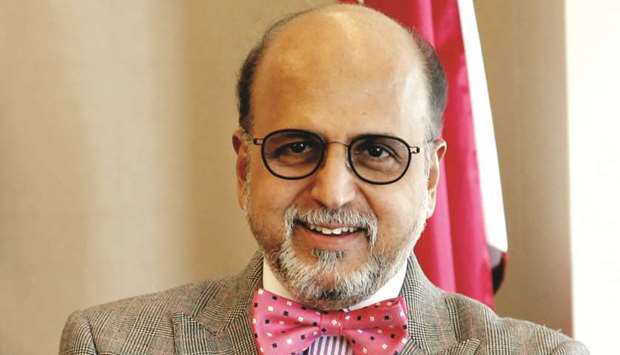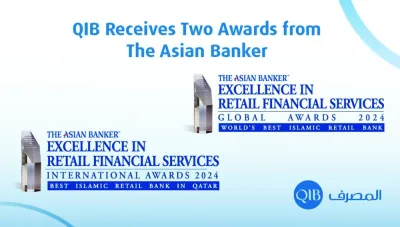In 2019, global bond issuances are at $2.694tn as against $3.79tn in 2018. The Federal Republic of Germany, Republic of Italy, Canada and the European Investment Bank are the key issuers.
In 2019, global sukuk Issuances are close to $38bn with Urushatra Jammah Sdn, Republic of Indonesia, First Abu Dhabi Bank and Turkey being the key issuers. In 2018, global sukuk issuances were above $45bn.
Last week the Federal Reserve lowered interest rates for the first time since the Great Recession in 2008 to help stave off the possibility of an economic downturn. The Fed also announced plans to end the reduction of its $3.8tn asset portfolio, effective August 1, two months earlier than previously expected. The runoff was set to end after September. Policymakers in their statement said they would "continue to monitor" incoming data and would act as needed to support the economy.
Federal Reserve governor Powell stated: “We are thinking of it as a mid-cycle adjustment to policy, I'm contrasting it with the beginning of a lengthy cutting cycle.” In response to US rate cut, the central banks of the UAE, Saudi Arabia and Bahrain cut their interest rates by 25 basis points last week. Kuwait kept its discount rate unchanged at 3%. The Qatar Central Bank (QCB) decided last week to reduce the QCB lending rate (QCBLR) by 25 basis points (bps) to 4.75%.
The yield on the benchmark 10-year Treasury note, which moves inversely to price, was lower at around 2% prior to the Fed meeting. US government bond yields fell to their lowest levels since before the 2016 presidential election on Friday, completing a remarkable arc tracking the rise and fall of investors’ economic optimism. The bond market remains vigilant in its view that the Fed will put through several more cuts by the end of 2020. However, US Treasury yields extended their week-long slump on Friday as global bond markets rallied on the escalation of US trade tensions following President Donald Trump’s vow to impose additional tariffs on China. Trump announced on Twitter last Thursday that he would slap 10% import tariffs on $300bn of Chinese imports that had yet to be subjected to levies, starting from September 1. It came after the latest round of bilateral talks showed little sign of a breakthrough.
The new tariffs, due to take effect on September 1, effectively tax all Chinese imports to the US. The duty is likely to target a wide range of goods, from smartphones to clothing. The US 10 year yield ended at 1.84% by end of last week.
Yields across the entire German government bond market dipped into negative territory on last Friday for the first time ever, as investors scrambled to buy less risky assets after an escalation in the US-China trade conflict. This week the yuan fell below the seven-to-one dollar level for the first time since 2008. The People’s Bank of China (PBoC) stated the decline due to “unilateralism and trade protectionism measures,” in a clear reference to Trump’s tariff hikes.
In 2019 Gulf Conventional Bond issuances have exceeded $56bn with Qatar leading the issuers with a $12bn issuance. Other leading bond issuers include Saudi Arabia Oil Company, Saudi Arabia and Oman. The State of Qatar has achieved a successful return to the international financial markets with a total of three tranches worth a total of $12bn. The first tranche included five-year bonds worth $2bn — pricing 90 basis points over US Treasury bonds on five-year bonds. The second tranche for 10 years’ worth $4bn — was 135 basis points over US treasury basis points. The third tranche is for 30 years’ worth $6bn, and 175 basis points above US Treasury bonds.
Qatar is the first country in the world to issue Formosa bonds on the Taipei Stock Exchange since 2018. In 2018, Gulf Conventional Bond issuances exceeded $60bn. In 2018 Qatar and Saudi sovereigns had tapped the bond market.
The Gulf sukuk Issuances exceeded $10bn in 2019. The major sukuk issuers in Gulf in 2019 include Saudi Telecom — $1.25bn, the Emirate of Sharjah — $1.2bn and First Abu Dhabi Bank — $1bn respectively.
The Qatar 5 year CDS is at 51.514 basis points, Saudi 5 year CDS is at 71.939 basis points, Dubai is at 130.360 basis points, ADB 5 Year CDS is at 49.105 basis points and Bahrain is at 232.780 basis points. The GCC borrower loans were close to $35bn this year with Emirates Global Aluminum & Saudi Electricity being key issuers.
* The author is Group CEO of Doha Bank.



